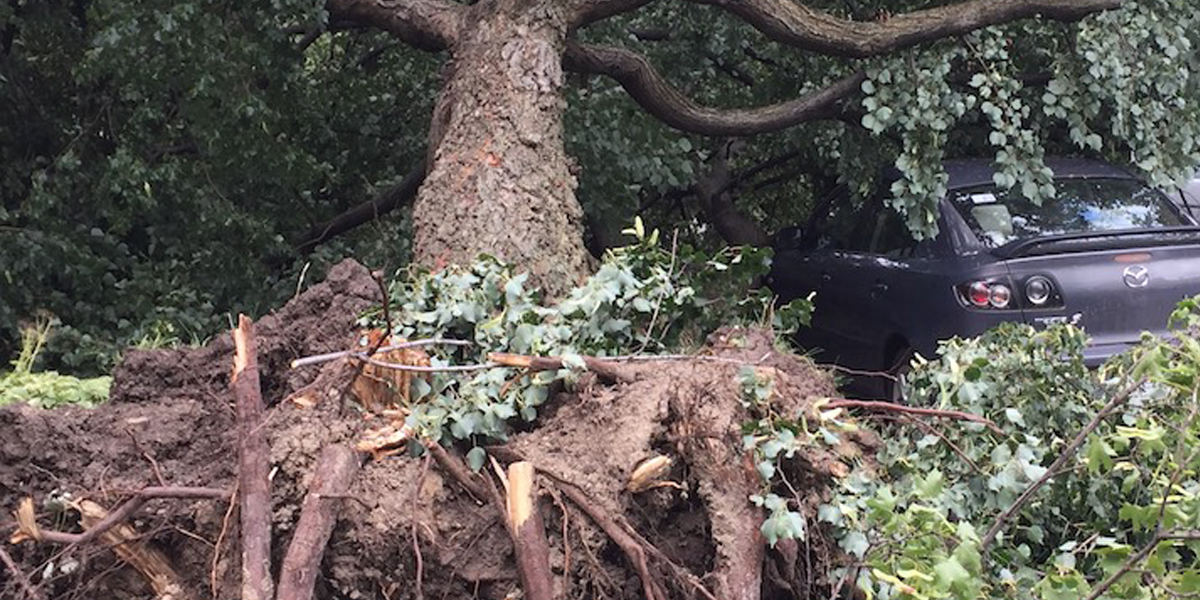
Recent evets have left me wondering how people are coping with the unprecedented number of storms hitting North America. The size and frequency of recent storms have impacted us on the inside every bit as much as they have on the outside. When a violent 15-second microburst hit my hometown of Montreal in August 2017, it uprooted 100-year-old trees and changed the face of my community – literally. Streets with heavily-treed canopies were now open and vacant. Hurricane Harvey then drowned a big part of Houston, Texas, displacing tens of thousands. In British Columbia, whole communities were evacuated due to record wildfires and in Quebec, devastating spring floods continue to affect the lives of thousands.
Yes, I’m ready
Humanitarian responses here and in the U.S. have certainly been reassuring. But how are individuals coping on the inside? What is happening in the hearts and minds of people as they realize the extent of the devastation? Kindness and compassion are helpful for others who are left stranded by the storms. But self-compassion is just as valuable and necessary. Have you noticed that it is easier to give to others than it is to yourself? It does not come naturally to most, and yet it is key to resilience and healing.
Have you been directly affected by a recent storm? If so, you may be feeling anxious, irritable or sad. You may also have trouble sleeping or find yourself startling easily. These are all understandable responses.
Even if you were not directly affected by these storms, but you have family or friends who were, the impact on you is real. You will feel it because of your connection to them.
In either case, the feelings that accompany violent storms like these are not comfortable. Helplessness, fear and vulnerability are powerfully disturbing. “Dealing” with them often means numbing with alcohol, distracting with work or pretending nothing is happening at all. Surely we want to feel better, not worse!
Ironically, the most effective antidote to feeling overwhelmed is to lean into the discomfort, to feel it, to allow it and respond with self-compassion. Every moment you practice allowing your experience to be as it is, you are expanding your capacity to bear hardship and change. Bringing self-compassion and kindness to whatever is here will strengthen you. Here is a way you can do that.
Four Steps for Coping with Self-compassion
1. Acknowledge What Has Happened
Slow down. Say “yes” to the fact that this has happened. You do not have to like it. You simply need to acknowledge that this is what has taken place. What you are focusing on in this step is the fact is that whatever was lost in the storm meant something to you and is no longer there. This could be the trees in your neighbourhood, your home which was flooded or the faith you once had in the government to respond sensibly and responsibly.
2. Allow What Is Already Here
Allowing means noticing the facts about the situation and whatever feelings may be there. Allowing is about stopping to pay attention to your inner and outer experience and riding the wave of the intensity – without judgment. Remember, feelings are not a sign that anything is wrong. They are simply energy in motion and the body’s response to a perceived event. If this is too difficult, take a deep breath or two while you tolerate what comes up. Notice how it shows up in your body. Perhaps it appears as tension in your face, throat or heart area. As you notice these sensations and allow the feelings, you will notice that the intensity subsides. As it does so, you will realize that you do have the capacity to be present with your experience.
3. Investigate What Is Happening Inside You
When you are ready, ask yourself very gently what you are believing about this situation. The purpose here is to reveal what is causing any undue suffering. Do you believe that grief makes you weak? That nothing will be okay again? Respond to this place with deep compassion. Ask yourself what you need right now. Is it love? Safety? Reassurance? Now imagine giving this to yourself. Be the loving kindness you need. Notice how this changes your inner experience.
4. Non-identification – Your Feelings Are Not You
Once you have allowed your emotions and investigated with kindness, you will notice a sense of openness inside you. Like expanding your chest as you take a deep breath, your awareness also expands and shows you that a feeling is simply an experience. Who you are is not defined by any one experience, thought or feeling. It will pass just as clouds pass in the sky. The truth is that you are the awareness that notices the grief. When you witness the events of your life lightly without avoiding or changing them in any way, you increase your capacity to be free from suffering.
Are you able to respond to yourself with compassion when you are stressed? Perhaps it feels unnatural for you. This is common for many people, but it does not have to be permanent. It is an ability that can be learned. Coaching is a gentle and effective process for cultivating this essential life skill. You may start off wobbly and unsure, but in time, you can count on self-compassion to be there when you need it most.
Yes, I’m ready








